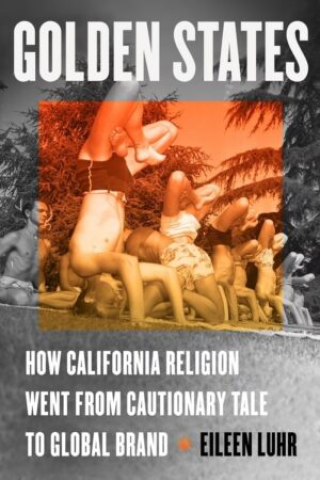Many of us are now familiar with Dr. Bronner’s Soaps, a family-owned business based in Vista, California known for the colorful and text-laden, spiritual messaging of its packaging. Yet behind this now popular brand lays a larger story of California as an important site for reconceptualizing communities of belief and belonging.
My new book, Golden States: How California Religion Went from Cautionary Tale to Global Brand, examines how commitment to the emotional and therapeutic needs and desires of individual believers in Southern California often came at the expense of broader efforts and obligations to achieve collective well-being. The consumer marketplace has often exacerbated American tendencies toward individualism. Yet as I show in the book, the story of Dr. Bronner’s Soaps shows how concepts like ethical consumption and corporate social responsibility can contribute to the collective good. It’s also a brand that shows the convergence of religious and spiritual visions and social activist business practices over time. Throughout the company’s existence, the family has used its founder’s belief in an “All-One-God-Faith.” The company’s mission shows how a spiritual vision can be reinvoked, reshaped, and reimagined within new economic and cultural contexts.
Emanuel Bronner, the founder of the company, was born in 1908 to a family of Jewish soap makers who owned a large factory in Heilbronn, Germany. He apprenticed with another Jewish soapmaking family, attended a guild system trade school, and received a university degree in chemistry before arriving in the United States in 1929. Like many other religious visionaries, Bronner experienced a series of personal misfortunes. His parents died in the Holocaust and his wife died in a mental institution in 1944, leading Bronner to put his three children in an orphanage. After escaping a mental institution in Illinois and hitching a ride west with a driver he met via a classified ad, Bronner arrived in California in 1947. Shortly thereafter, he resumed his soapmaking, brewing twenty-gallon batches in the tenement he rented in downtown Los Angeles. During this time, he also began to refer to himself as a doctor and rabbi and to speak about his religious visions. While lecturing in Pershing Square, he noticed that audience members took the free soap but left without listening to his ideas. He then began to put his “All-One-God-Faith” message on bottles.
